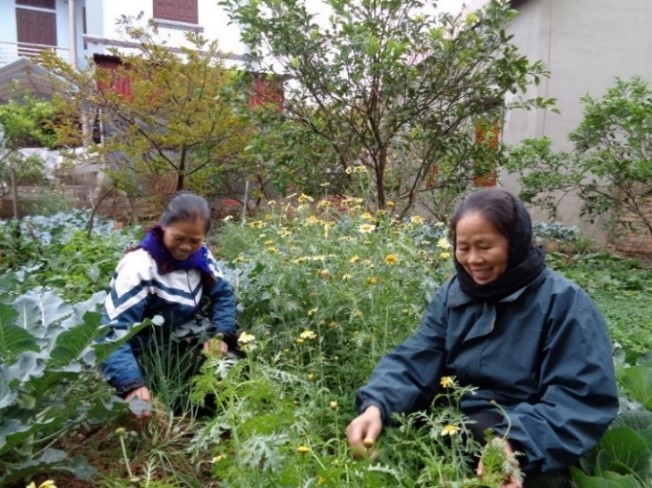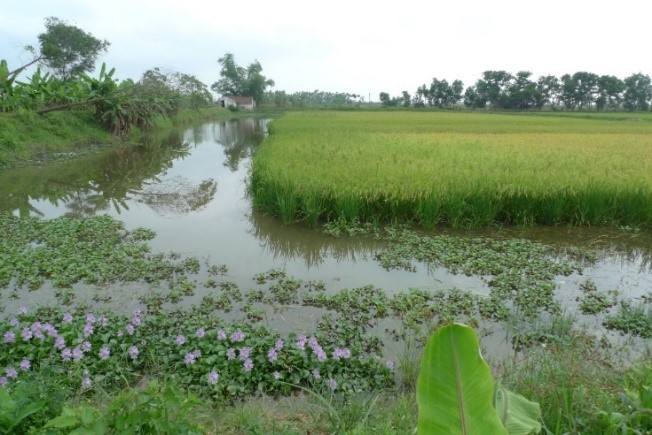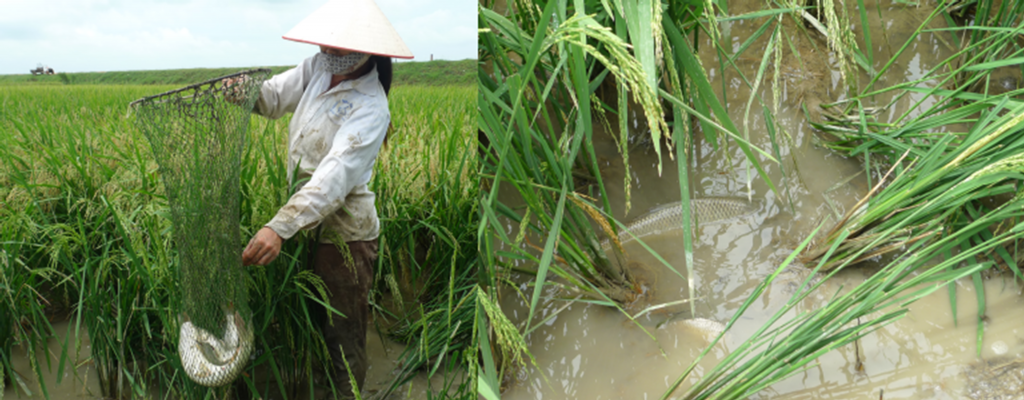INCOME GENERATION PROJECTS
 |
ICERD supports ecological agriculture and agrobiodiversity in an effort to reduce input costs (of pesticides), preserve agricultural environments so that they can be sustainable sources of income into the future, and discourage monocropping- or overdependence on a specific crop- in order to further diversify and protect income. This is achieved through various options that provide alternate income generation for community members including: Conservation and use of fish and aquatic animals in rice field/integration rice-fish-duck, Home garden/”integration of vegetables-livestock production” through biomats and composting, growing and selling of local indigenous herbs, ect. |
CREATING AQUATIC HABITATS IN RICE FIELDS
 |
By training farmers on how to create thriving aquatic habitats in rice fields farmers are able to raise aquatic species, insects, and small animals in order to provide supplementary income. For example System of Rice Intensification (SRI) is applied to improve rice production as well as to create a suitable ecosystem for fish such as wide spacing. Furrows are created to improve drainage and also allow fishes enter to the field. Also alternatives to chemicals (bio-pesticides, compost and bio-fertilizer) are applied. |
ECOLOGICAL AGRICULTURE AND POVERTY REDUCTION
 |
Methods such as IPM, SRI, alternatives to chemicals (bio-pesticides, bio-mats, compost and bio-fertilizer, and use of botanical pesticides) also contributed to reduction of input cost (chemical fertilizers and pesticides) and increased yields for farmers in the program thereby increasing overall income. In 2015, farmers in Bac Giang were able to earn more than 10 times more from rice-fish farming compared to farmers growing rice only. Farmers were able to reduce their pesticide by 50 to 90 % compared to farmers who were not in the program. |


